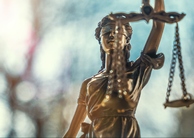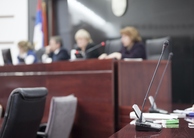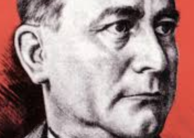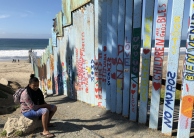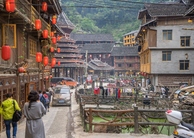From Cornell International Affairs Review VOL. 2 NO. 2Human Rights in Indonesia: The Consequences of Discrepancies in Domestic Versus International Law
IN THIS ARTICLE
KEYWORDS
Two years ago, my mom handed me the article, "Below a Mountain of Wealth, a River of Waste," from The New York Times, describing Freeport-McMoRan's mining activities in Papua New Guinea. After reading "Below," I knew that the world had to change; the injustices that Papuans were experiencing could not continue for long without retribution. "[A]n American transnational mining company called Freeport-McMoRan…operat[es] the largest gold mine on Earth, not in Africa but in the heart of West Papua" (Leith xv). FreeportMcMoRan Copper and Gold Inc. is the best known subsidiary of PT Freeport Indonesia, operating in West Papua, New Guinea. Freeport's operation there has resulted in the complete remodeling of the society and economy. West Papua is a province of Indonesia; it, along with Papua New Guinea, comprises the island of New Guinea. West Papua has a population of approximately 800,000 people, making it one of the smallest Indonesian provinces. Due to its small size and remoteness, Freeport was able radically to change the social structure there; often these changes occurred without Papuan consent. Freeport stated that where natural resources are present in a country, it is inevitable that companies will enter the country to mine the resources, if the local population does not choose to do so first, thereby initiating a process of environment change in the country. The devastating transformation of the land in Papua has provoked retaliation from the local Papuans in recent years. In 2006, Human Rights Watch reported that [a]nti-Freeport demonstrators attacked the hotel [where the Freeport representatives were staying] after being unable to address local officials meeting with Freeport representatives…[d]emonstrations against Freeport have increased in recent months after Freeport security forces tried to evict local miners, alleging their activity was illegal. Protesters accuse Freeport of not providing enough to the people of Papua in return for the mine, polluting the environment, and for being responsible for human rights abuses through their use of the military for security services. (Human Rights Watch) Human Rights Watch is not the only organization to document increased protestation from Papuans. Although Freeport's presence in West Papua is not recent, the protests continue. In April 2007, the Xinhua News Agency, the official press agency of the People's Republic of China, reported "police claimed the number of the protesters had risen from 1,000 on Wednesday to 7,000 on Friday" (Xinhua). The protests' escalating size drew international attention. Despite the resistance in West Papua, Freeport will remain in West Papua until its contract expires. Even after Freeport's contract with the government terminates, Freeport and other companies will continue exploring for resources in West Papua. A topographical reminder of Freeport's activities in Papua will also endure in the form of a 1,500-foot deep crater, where a 13,500-foot mountain once stood. Freeport's success is largely a result of timing and convenience. Freeport and the Indonesian government both benefit from their relationship, which has been accused of being fraught with corruption, bribery, and exploitation. Although Freeport has made efforts to improve its reputation, in order to regain the support of its investors, its questionable actions are not isolated. Freeport, along with many other transnational companies, is escaping legal prosecution due to the differences between domestic and foreign laws regulating mining practices, human rights and environmental standards. The discrepancies between these legal systems of the country in which a corporation is established and the countries in which the corporation operates need to be identified and addressed in order to ensure the protection of the rights of indigenous populations and of the environment. BackgroundBroadly, there are three constituencies in the argument concerning the legality of Freeport's actions in West Papua. The first constituency is comprised of mining and engineering companies and businesses that perceive Freeport's procedures as necessary for a successful operation, and believe that Freeport has been very responsible in its actions towards the environment and the Papuans. One engineering and mining journal published, "Freeport's Commitment to Remediation," which discusses Freeport's plans to make its mining site livable after its contract expires. The article even claims that the "site remediation plans… will leave the area in better and more useful condition than it was prior to mining operations" (1). Business Week, states, "Freeport is definitely considered a bellwether for foreign investment prospects." This reveals the business perspective on Freeport's actions. The business community sees the company's operation as an exciting endeavor, even while recognizing that Freeport has violated human rights, given that Freeport has admitted that its "human rights policy is being only partially implemented." While Freeport is supposedly "beginning to do the right thing… it's only a first step…[and] it's way to early to say Freeport has turned over a new leaf" (Business Week). The second constituency in the argument is Freeport itself. Freeport has published explanations of its actions. Often these publications are in rebuttal to accusations that the company deems unfair and false. James R. Moffett, Freeport's chairman and CEO, who would only "provide written answers to [Business Week's] questions[, wrote] ‘it's our responsibility to ensure that the local people benefit from our presence…[and it is] our aspiration to develop relationships based on honesty, equality, and justice'" (Business Week). Moffett's statement presents Freeport as seeking to treat the Papuans fairly and obey all of the legislation to which it is subject. The third constituency in the argument, consists of human rights activists, journalists, and environmentalists who strongly oppose Freeport's actions in West Papua. This constituency claims that Freeport is corrupt and illegal and has escaped international justice and should be stopped. Despite adamant opposition to Freeport's behavior in Papua, there has been no proposed solution to solve the discrepancies between domestic and foreign legislation. I hope to propose a solution to this international legal problem, in order to punish the perpetrators of human rights violations, environmental degradation and other injustices and to limit or prevent such violations and damage from occurring in the future. DiscoveryI knew in a blink of an eye what this was about. It was hard to miss, with all the green and blue spots. The copper was obvious. I realized that no one could do anything with it. There were no roads, no harbors, no factories. It was just like a mountain of gold on the moon. (Mealey 71) In 1936, Jean-Jacques Dozy, a Dutch geologist, found copper ore in the rain forest of Indonesia, naming the site Ertsberg. The copper ore, known as an "ore body," however, was not immediately mined , due to the outbreak of "World War II, the German occupation of Holland [which exercised colonial authority over Indonesia], and the Japanese occupation of West Guinea" (Leith I). Following the end of World War II, Freeport-Sulphur, the predecessor of Freeport-McMoRan Copper and Gold of the United States, became aware in 1959 of the ore body in Papua, and sent a team of geologists to explore for and investigate Dozy's dormant discovery. When Freeport began exploring the area in the "1960's,…its explorers were among the very first outsiders ever encountered by local tribesmen swathed in penis gourds and armed with bows and arrows" (Perlez, Bonner). In 1967, Freeport became the first foreign company to sign a contract with the Indonesian government permitting mining in the area and foreign investment. The contract outlined many provisions and left many important terms open to interpretation. One example of the loose terms in the mining agreement was that Freeport was not required to submit construction plans to the Indonesian government. Instead, Freeport was responsible to keep the Ministry of Mines updated on their work and exploration. The Indonesian government saw economic growth as their highest priority, and agreed to help "cooperate with [Freeport] in matters such as appropriating land and other property required by the project and in the resettlement of inhabitants who may have been displaced by the project" (Mikesell 133). In addition, Freeport was given full control of exploration, construction, and operation of the project, and it was given full management of marketing, and negotiating long-term contracts. The Indonesian government was responsible to be "familiar with [Freeport's] marketing policies and procedures, and, if requested by [Freeport], be able to assist [Freeport] in dealing with such marketing problems as may arise" (Mikesell 134). The language in the contract left the Indonesian government vulnerable to Freeport's needs and requests, and was the foundation of a wavering relationship that formed thereafter, due to power distribution. In 1974, due to the weakness of some of the terms in the 1967 contract, the Indonesian government sought to revise the contract . Freeport agreed to three revisions, all pertaining to taxes on the company. These changes, however, ultimately had little effect on Freeport's operations. The DiscrepanciesFreeport was fortunate in the timing of its entry into Papua, New Guinea. The Sukarno government had just been overthrown by a military coup, and a new government, the New Order regime, was looking for "international recognition and political support while attracting foreign aid and investment to foster stability, legitimacy, and development" (Leith 2), which is what Freeport was willing to provide in exchange for gold and copper rights. However, Freeport was hesitant to commit to the New Order regime until it reversed certain of the Sukarno policies that were unfavorable to the company. The Foreign Capital Investment Law of 1958 and the Mining Law No. 37/1960 were two of the most important laws that the New Order regime overturned. By repealing the former, the New Order regime revealed its support for foreign investors, by returning confiscated foreign property, which had been seized by Sukarno, to its former owners. The repeal of the latter law revealed the government's interest in "displaying its support for the interests of the license holder [in this case Freeport]…whenever there [was] a clash between the landownership and the mining operation" (Republika). Once Freeport committed to the New Order regime of Indonesia, the company developed a very close relationship with its President, Suharto. Both Suharto and Freeport "shared an overriding desire to turn the copper and gold in the Cartstensz Range into currency as expeditiously as possible" (Leith 3). Such a desire vitiated the government's interest in regulating Freeport's actions. Their desire for gold, however, left Freeport and the Indonesian government vying over profit percentages and in a volatile relationship. In the beginning, Suharto was grateful for Freeport's support and was aware of Freeport's power, because it contributed heavily to the economy. It is the largest taxpayer in the economy; "[f ] rom January to December 2006, Freeport Indonesia paid its financial obligations to the government of Indonesia in the sum of 1.6 billion dollars…dividends account for 159 million dollars and royalties for 146 million dollars" (Agence France-Presse). The company is also the largest employer in West Papua. Freeport's prominence in West Papua and the importance to the government began when it signed the 1967 contract. With time and an increase in the company's copper and gold findings, Suharto and the Indonesian government gained confidence and began demanding more of Freeport. Suharto required a "10 percent share in the operation... [and] [e]ventually, Freeport financed Suharto's government, his closest associates, and even the president into the company on exceptionally favorable, if not questionable, terms" (Leith 4). Here, the author highlights the evolution of Suharto's and Freeport's relationship and how it became increasingly corrupt over time. Freeport's close ties to Suharto and its financing of the government was convenient for the parties involved. It is this exploitative relationship that was both the cause and continued result of Freeport's activities in West Papua. The Holes in Between International and Domestic LawFor more than thirty years the American company, with its rigorous home-state laws against corruption, was able to operate with impunity by adapting to, and indeed thriving in, a business culture anchored in corruption, collusion, and nepotism. (Leith 3) Domestic LegislationFreeport is a New Orleans based mining company that has many mining sites around the world. Its largest subsidiary is in West Papua, New Guinea. Freeport is a transnational company, and therefore needs to follow different laws and regulations. The United States government restricts a transnational company with corruption and foreign investment laws. In terms of a transnational company's relationship with foreign governments, however, the company is free to establish contracts with the foreign governments defining the terms of its operations, often defining weaker environmental and human rights standards than would be legal in the United States. One law that Freeport was accused of breaching in its sinuous relationship with the Indonesian government was the United States Foreign Corrupt Practices Act (FCPA). The FCPA was enacted in 1977, ten years after Freeport had begun establishing its relationship with the Indonesian government, and the FCPA was revised in 1988. The FCPA prohibited the bribery of foreign government officials by U.S. persons and prescribe[s] accounting and recordkeeping practices…[making] it illegal for U.S. persons to bribe a foreign government official for the purpose of obtaining or retaining business. The wording of the FCPA is quite interesting and makes its scope rather clear. The fact that the FCPA deals only with bribes made to foreign government officials acts to exclude from the FCPA ambit payments to foreign persons who are not government officials. Additionally, the fact that the FCPA deals only with bribes that are intended for the purpose of obtaining or retaining business acts to exclude grease or facilitating payments from the scope of the FCPA. A grease or facilitating payment is a payment made to expedite or secure the performance of a routine government action. (FindLaw) As described by the author, the drafting of the FCPA made the legislation inadequate to prevent Freeport from paying the government officials or military officers in bribes, in order to "grease" them into helping to support Freeport's operations in West Papua. This is one example of the ineffective legislation that the United States has to restrict the actions of their companies abroad. Freeport is therefore left to police itself. Considering there is no real international policing system to scrutinize Freeport's operations; Freeport was left with significant leeway potentially to abuse its relationship with the Indonesian government. In addition to Freeport's ties to the Indonesian government, Freeport benefited from the Indonesian legal system, which is almost completely powerless when compared to the United States' legal system. Its ineffectiveness is derived from the close relationship between Freeport and the Indonesian government, given the latter's reliance on Freeport for a strong economy and desire to remain on good terms with Freeport. This is in contrast to the United States' legal system, which has stricter regulations on mining and the environment within the United States. However, despite the more stringent legislation, companies are still capable of committing grave injustices. Companies are able to escape legal consequences in the United States due to their affiliation with lobbyists and their participation in the election process. The coal-mining lobby, for example, has a large influence on election campaigns and results as donors. Therefore, due to a lobby's presence and power in Washington, D.C., the elected official is often unwilling to repay their supporter by imposing harsh restrictions on the company's actions or the mining industry. One example of the strong influence that a lobby has on the government was observable in the 2004 presidential election. The coal lobbyists heavily sponsored President Bush's campaign. In return, he changed "the wording in the Clean Water Act so that mining waste became benign "fill." This made it legal for coal companies to dump hazardous waste in the rivers, streams, and waterways around the mine. Coal companies in eastern Kentucky utilize the same methods of mountain top removal as Freeport. Mountaintop removal is a process where the mining company literally removes the top of a mountain in order to access the minerals below. This is a very destructive technique that requires explosives, and the companies often place the land in the surrounding valleys and waterways. This can lead to an increase in mercury levels in the water and potential harm to society, because mercury is toxic to a person's health in high concentrations. Understanding the similar practices that Freeport and coal companies use in the United States and abroad is important because it reveals the lack of regulation across the board in mining; however, it also exposes a deeper issue that the weakness revealed in the United States' legislation is actually some of the strongest worldwide. Luckily in the United States there are organizations that help ensure the government and companies are kept in check. Changes in our legislation that benefit individuals to the detriment of the public interest are unjust. While balancing society's interests in legislation is difficult, because "it's difficult for us to acknowledge the wisdom of policies that clash with strongly held values" (Reece 216), it is essential in order to guarantee justice. In America the desire to satisfy individual interests often overrides our concern for helping others; it is interpreted as "individualism…as one's unfettered right to use resources, [which] clash[es] with the values of conservation and preservation of those resources for future Americans" (Reece 216). Please see if the material between the brackets should be revised for clarity. The American standards for mining companies domestically are unfortunately some of the strongest and most restrictive in the international community. They are not forceful enough to protect the environment and the rights of the people around the mining site; the United States government is designed to prevent ties between companies and the government from forming and becoming contaminated with corruption and greed; but as with all systems of government, though, this is not always successful. However, the United States government is immune from a company's overpowering the entire government, as Freeport was able to in Indonesia. This difference in the United States, along with watchdog groups and concerned citizens, ensures that unjust companies will be held responsible for their actions. Freeport-McMoRan: A Criminal Company?The lack of existing domestic legislation and the legal discrepancies between international and domestic law allowed Freeport to define the legality of its own operations. Freeport drafted and signed its contract with the Indonesian government prior to any existing legislation, like the FCPA that regulated its actions abroad. The FCPA made Freeport's relationship with the Indonesian government criminal, because Freeport had been using bribery and coercion to increase their profits. Even after the FCPA was passed in 1977, Freeport continued to escape legal retribution, because the United States government was benefiting from Freeport's actions abroad; "[c]ompany records obtained show that from 1998 through 2004, Freeport gave military and police generals, colonels, majors and captains, and military units, nearly $20 million. Individual commanders received tens of thousands of dollars, in one case up to $150,000, according to the documents. They were provided by an individual close to Freeport and confirmed as authentic by current and former employees" (Perlez, Bonner). Although it is illegal under Indonesian law for a government official to accept direct payments from a company, these facts, obtained by The New York Times, reveal that illegal payments were being made. This reveals the corruption that existed between the Suharto regime and Freeport. In addition to bribery, Freeport was connected to several human rights violations. Freeportís "Guiding Principles for Indonesian OperationsóPeople and the Community" states that it is "one of the few multinational companies in the extractive industries with a well-defined human rights policy and implementation program [and] [i]n developing this policy [was] guided by the United Nations Universal Declaration of Human Rights and the Voluntary Principles on Security and Human Rights." This statement, however, is refuted by its actions in West Papua. Freeport had company security forces being accused of shooting the local people and allowing the military to use its facilities to commit atrocities against the citizenry in 1995 [e] ven though Freeport personnel were aware of human rights violations for years, it would appear that as in the past, the company failed to make any effort to prevent such actions, advise the appropriate authorities, or protect the Papuans whose land it exploited. (Leith 218-9) Not only were Freeportís own security forces accused of violating human rights, but Freeportís operations also required a military presence from the government for security of the mine. Freeport was therefore connected to the violent acts of the military against the indigenous populations; "while [Freeport] cannot be blamed directly for the human rights abuses the military commits, neither [can it be] completely free of culpability there is an undeniable connection" (Leith 219) between the military protecting the company and the human rights violations that occurred in Papua. Lastly, Freeport has been accused of destroying the Papuans' land and the environment. Freeport states in the same "Guiding Principles" report, in its Mission Statement, that it is committed to the "protection of the environment" and that it would "go beyond its legal and contractual commitments" to the government and Papuans in ensuring that they benefited from the mine and in protecting the environment. Simon Wandikbo…the village pastor, recalled that in 1969 a special vote was held to decide Papua's future. Simon's aunt was among 1,022 tribal elders selected to take part. The vote was sponsored by the United Nations, with U.S. support. The aunt, now dead, told him the elders were coerced into choosing to remain with Indonesia, he said. Studies by academics in the Netherlands and in Britain, as well as declassified U.S. documents, support her contention. ‘They promised that we would belong to a great nation and have great homes and we would be wealthy…[t] hat was in the 1960s. Now it's 2006. Nothing has changed -except for the worse.' (The Washington Post) This quote indicates the expectations that the Papuans had before Freeport became heavily invested in West Papua. The people believed that their lives would be improved by the company's presence, and that they would share in the profits that the company made, when, in fact, they were exploited for their land. Although Freeport was complying with the regulations established by Suharto under the 1967 contract, the regulations were hardly restricting. By the end of Freeportís contract with the Indonesian government, Freeportís own estimates state that it will generate an estimated six billion tons of waste more than twice as much earth as was excavated for the Panama Canal. Much of that waste has already been dumped in the mountains surrounding the mine or down a system of rivers that descends steeply onto the islandís low-lying wetlands, close to Lorentz National Park, a pristine rain forest that has been granted special status by the United Nations. A multimillion dollar 2002 study paid for by Freeport and not previously made public, noted that the rivers upstream and the wetlands inundated with waste were now "unsuitable for aquatic life" (Perlez, Bonner). This account reveals the severe and damaging effects that Freeportís actions are having on the environment. It also exposes Freeportís actions as harmful to the villages and population around the mine, because Freeport is moving land and minerals from the mine, placing it elsewhere, destroying the surrounding ecosystems. The land is a common resource on which many Papuans rely for survival. The lenient regulations in Indonesia do not curb the abuses in which Freeport is engaged "[i] n the United States, Freeport would not be allowed to discharge sewage and tailings directly into the local river system" (Leith 251). By contrast, in West Papua Freeport is under relaxed supervision, which prevents Freeport from being properly regulated. Because the Suharto government had a financial interest in Freeportís operations, and did not investigate environmental reports from the Papuans, the extent of the damage to the environment from Freeportís operations has not been fully investigated. Freeport's abuse of legal standards with the Indonesian government, its degradation of the environment, and connection to human rights violations expose Freeport as a corrupt company. It used the lenient foreign legal environment to its own advantage, while destroying the Papuan community around it. Although its actions were considered "legal" in Papua, they were considered highly immoral by "watchdog groups such as Human Rights Watch and Interfaith Center on Corporate Responsibility" (Johnson D1) and would be illegal in the United States, Freeport's home country. Not An Isolated ProblemUnsurprisingly, Freeport is not the only company that takes advantage of existent leniencies in foreign legislation pertaining to their operations, human rights standards, and environmental regulations. Currently, and in the past, companies have exploited the legal system, as Freeport has. ChevronTexaco abused the lack of legislation in Angola. Angola is fraught with corruption due to the prevalence of oil, an increasingly scarce natural resource. The exploitation in Angola was so prevalent that the World Bank called it a "cancer of corruption" (McMillan). Angola mirrors the problems witnessed in West Papua with Freeport. The "‘marriage of convenience' between the oil countries and the companies mean[t] that obscuring information [was] not difficult" (Karl, 476). In Angola, the United States government tried to reverse the corrupt practices by attempting to pass the Publish What You Pay Act, which required companies to publish where their payments went, making "it harder for developing country-government's to misappropriate the revenues" (McMillan). An American company operating in Angola, Chevron-Texaco, argued against the act. The board of Chevron-Texaco stated: publish-what-you-pay…break[s] the terms of contracts… ‘[w]hether it's the oil industry or any other industry, obviously you wouldn't want your competitors to know what you pay…[w]e recognize that we have a responsibility to the people of Angola, but when it comes to government policy we feel very strongly that it's not our role to suggest or influence national economic policy.' (McMillan) In this statement Chevron-Texaco makes it explicit that it is not going to comply with the new legislation, because they view it as jeopardizing to the success of their business. Chevron-Texaco's corrupt relationship with the Angolan government is representative of the government's relationship with the other oil companies operating in the country.Continued on Next Page » Suggested Reading from Inquiries Journal
Inquiries Journal provides undergraduate and graduate students around the world a platform for the wide dissemination of academic work over a range of core disciplines. Representing the work of students from hundreds of institutions around the globe, Inquiries Journal's large database of academic articles is completely free. Learn more | Blog | Submit Latest in Law & Justice |














